- Home
- slideshows
- miscellaneous
- Here are 9 kinds of tech you can expect to see in every store by 2030, according to analysts
Here are 9 kinds of tech you can expect to see in every store by 2030, according to analysts
Multipurpose experiential community spaces

In-store third-party returns
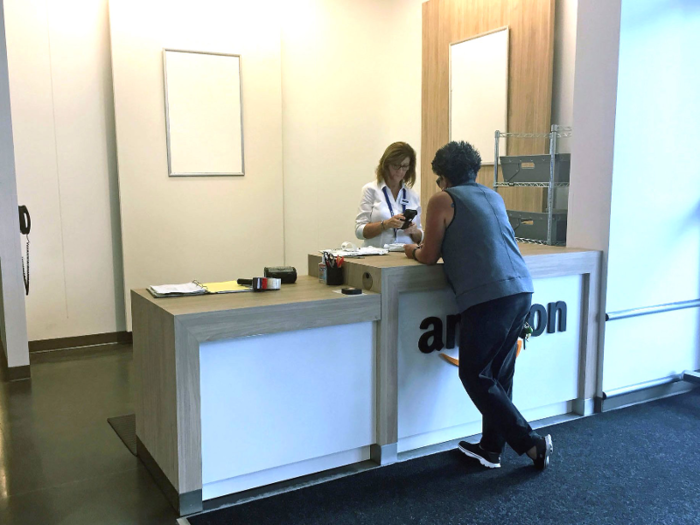
As consumers flock to direct-to-consumer and online-only companies in droves, brick-and-mortar brands are looking to cash in on shoppers that need help with returns. CB Insights hypothesizes we'll see more efforts like the Kohl's and Amazon partnership that allows shoppers to return Amazon purchases at Kohl's locations.
At the same time, analysts said to expect to see a rise in startups like Happy Returns, which allows online retailers like Everlane to give consumers the option to drop off items at "return bar" kiosks.
Indoor drone and camera vision technology
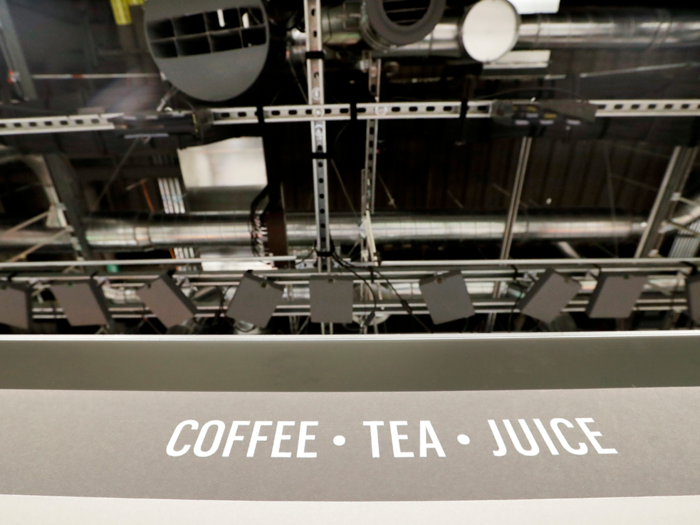
Analysts said to expect to see the use of indoor drone and camera vision technology, which allow retailers to better track inventory in real time. Companies like Kohl's, Walmart, and Brooks Brothers are already using these programs to improve efficiency.
"Inventory management is critical as retailers optimize across channels," the analysts wrote. "Stores need accurate, real-time inventory data in order to serve customers quickly."
Display technology
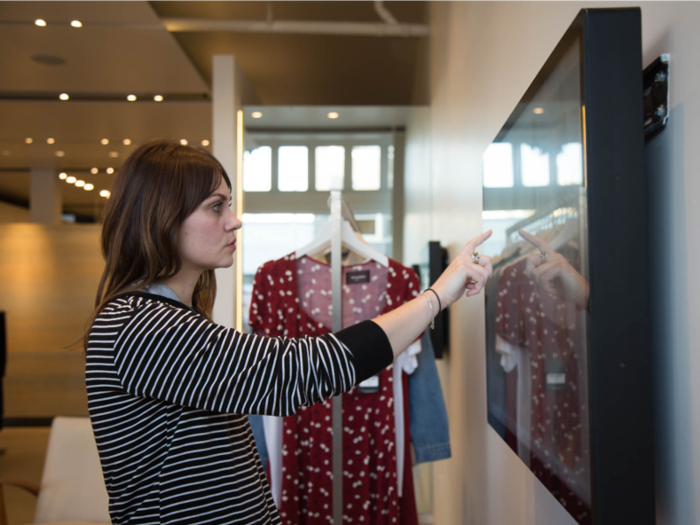
A significant number of apparel companies have already added interactive screens to their physical stores, but CB Insights analysts said to anticipate this to be the new normal. These displays, whether in the form of augmented-reality dressing rooms or mere screens for browsing products, are essential in collecting consumer data.
Mobile integrations
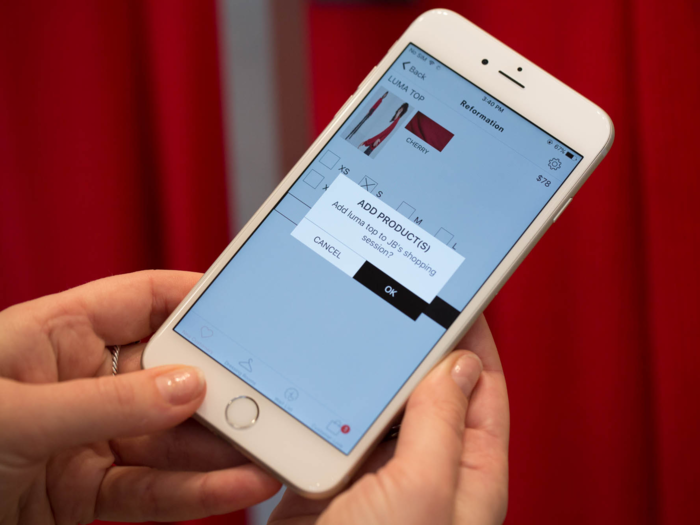
As mobile technology becomes more advanced and interactive, thanks in part to the rise of 5G cellular capabilities, consumers will continue to see more mobile integrations in stores, like QR-tagged mannequins and mobile pay.
"In-store mobile engagement is becoming a useful tool for both customers and sales associates," the analysts wrote in the report. "Retailers are leveraging customers' mobile phones as a way to interact with a physical store."
Customized manufacturing and in-store personalization
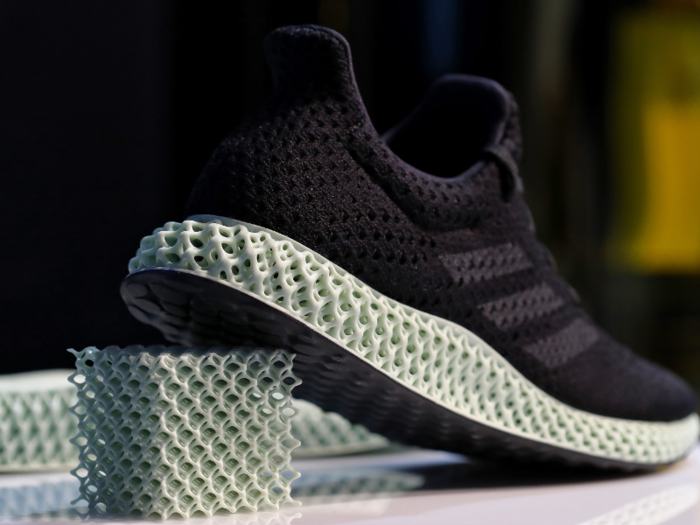
While only a select few retailers like Adidas and Nike have mastered the art of in-store custom 3D printing, analysts said this will be commonplace by 2030.
"If executed successfully at scale, customized goods could garner a level of customer satisfaction and brand loyalty that most retailers have yet to realize," the analysts wrote in the report.
Automated checkout
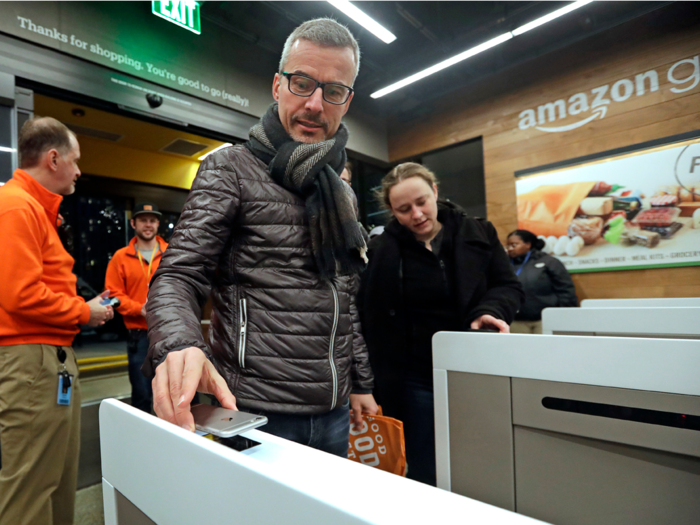
After Amazon Go demonstrated the ability to operate a store entirely on automated checkout — thanks to a mix of camera vision, shelf sensors, and RFID technology — there has been a rise in shops replicating this grab-and-go concept.
"Automated checkout technology is a way to reduce friction by cutting out the hassle of long lines at the register," the analysts said. "As tech giants like Amazon introduce this technology to the masses, smaller retailers will need a way to compete. Automated checkout startups may be one way to do that."
Micro-fulfillment and robotic warehouses
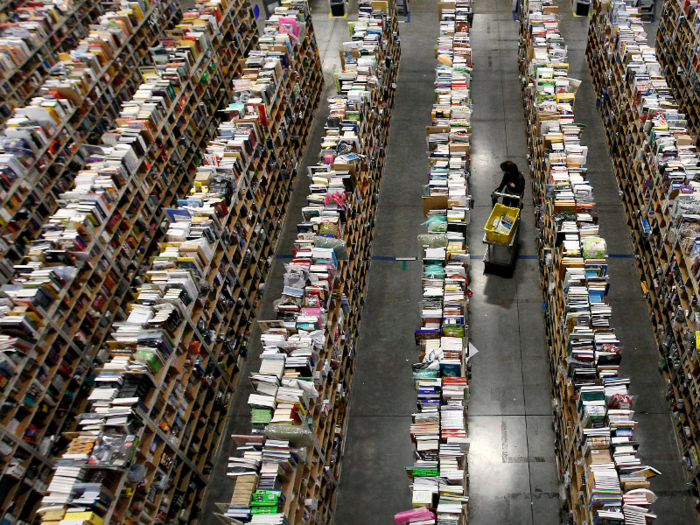
CB Insights said to expect a rise of micro-fulfillment centers, or "tiny, urban warehouses that autonomously fulfill online orders via robotic technology" in major cities. The analysts said these centers will play an integral role as a growing segment of the population moves to cities, citing a United Nations report that found that more than two-thirds of the global population will live in cities by 2050.
"By squeezing warehouses into dense urban areas and cutting down the distance to customers, retailers can reduce the cost of last-mile delivery," the report reads.
Driverless vehicles and autonomous delivery drones
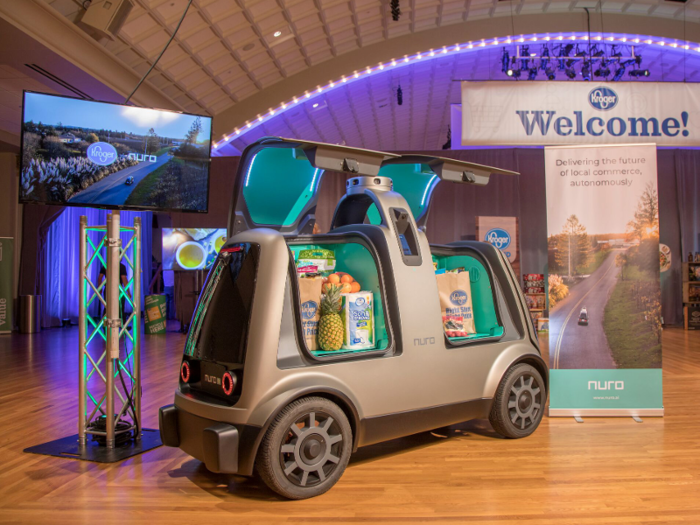
While Alphabet's Waymo has already made significant progress with its self-driving cars, other startups like Nuro, Starship Technologies, and Udelv have cropped up to provide fulfillment options for retailers. Though these vehicles still have to pass extensive regulatory protocols, the analysts said they will likely be an option to help both companies and consumers cut down on delivery costs.
Popular Right Now
Popular Keywords
Advertisement